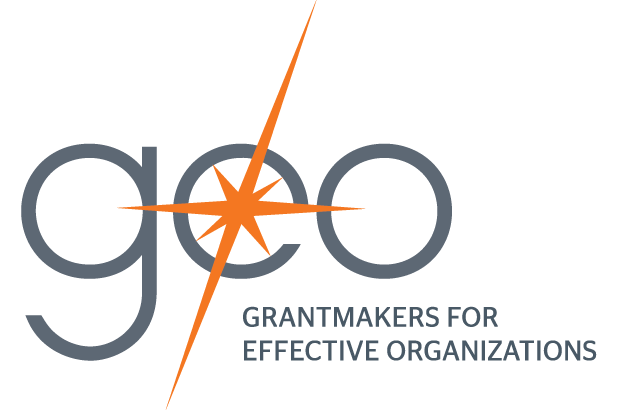I have a new mantra for 2021: “Take two steps forward with every action.”
This shift is inspired by my own personal reflections about the ways I had been walking in my work to advance racial equity at GEO, usually taking one step at a time. When a colleague recently spoke about our racial equity journey, observing how we move “two steps forward, as we also sometimes take two steps backward,” I was humbled, struck and even stunned to realize that taking two steps forward was not something I’d ever considered. In the time I had worked to advance equity in philanthropy at GEO and elsewhere, I realized I had become so accustomed to strategizing, navigating, mobilizing and muscling one grueling step forward at a time against the constant jetstream of rejection, isolation, and so many other, often reinforcing patterns of white dominant culture that I never imagined moving more than one step at a time. My one step approach has been informed by the Antonio Machado poem, oft-quoted in living systems and transformation workshops, “there is no path. The path is made by walking.” I thought the poem said one step at a time and I dutifully followed. Then, I would celebrate for about a second, take stock of the new position and new surroundings and then immediately begin plotting the next step.
While there’s nothing wrong with this one-step approach, I can now see that there’s more than one way to interpret the poem. The way we choose to transform our organizations depends on a mixture of our own perspectives, as well as broader organizational conditions and external contexts. Thankfully, as a positive outcome of somatic coaching, I’m not going to castigate myself for being a one-stepper. Rather, I can acknowledge one-step may have been an appropriate and useful approach for a South Asian American leading equity work through the quicksand of philanthropic culture and practice. How many times have I thought we took a step forward, only to find out later the step I thought we took has been forgotten, was revised, was misinterpreted, would be discussed next month – in essence, swallowed in the quicksand. When the land around you is treacherous taking one, careful, smiling, non-threatening step at a time can make sense.
But now it’s 2021 and context has changed. GEO’s commitment to racial equity has been operationalized, now re-defining grantmaker effectiveness around community-driven and equity informed culture and practice. There’s crucial demand from the GEO community for more racial equity content and more direct support to address the growing inequities in response to COVID-19 impacts. There’s been a sea change at the White House and Senate, generated by the groundswell of activism from millions of people hungry and impatient for a multiracial democracy. And personally, increased somatic awareness is thawing emotions I’d frozen and awakening my senses to more possibility. Now alive to so much momentum and so much potential, what are we at GEO and we in philanthropy going to do to play our part in this movement moment? And of immediate concern for me, is taking the one-step approach enough?
From my perspective, as a leader in the Strategy & Learning department here at GEO, I am responding to this moment by taking two steps with every action I take for our internal growth. What does this mean? So far, it means less preparing and more experimenting, which echoes Emergent Learning advice from adrienne maree brown, “less prep, more presence.” For example, instead of spending a meeting with supervisors discussing our plan for 2021, we practiced implementing the plan and invited feedback about the plan outside of the meeting. Two steps forward also means more clearly owning and standing in my perspective for how we progress, no matter the consequences. As opposed to developing proposals that are so carefully diluted to pre-resolve known and anticipated conflicts, I am more simply and directly expressing myself, showing my work, and trusting myself to be alive to differences, conflicts, as well as alignment and collective action in real-time. I can see how one step may have been appropriate at that time, but in this moment, it feels too safe, too self-protective, and too enabling of personal and organizational patterns I know need to change.
I recently received a beautiful letter from a friend who wrote, “Every time I hear voices saying it’s too chaotic to focus on our equity work, I hear your voice urging me to take another step.” The sentiment is deeply affirming. How delightful to know that I remain in someone’s conscience in a way that promotes more action, courage and accountability. And it’s humbling to see how devoted I have been to one-stepping!
Conditions in 2021 have changed. We see every day that the GEO community has more hunger and capacity for transformational change catalyzed by a commitment to thriving nonprofits, thriving communities. We stand poised to generate meaningful results in response to the complexities shaping the current moment. One step? Two steps? I actually have no idea how many steps we can take, how much progress we could make in 2021 if we are aligned and act with courage. The possibilities are endless.

